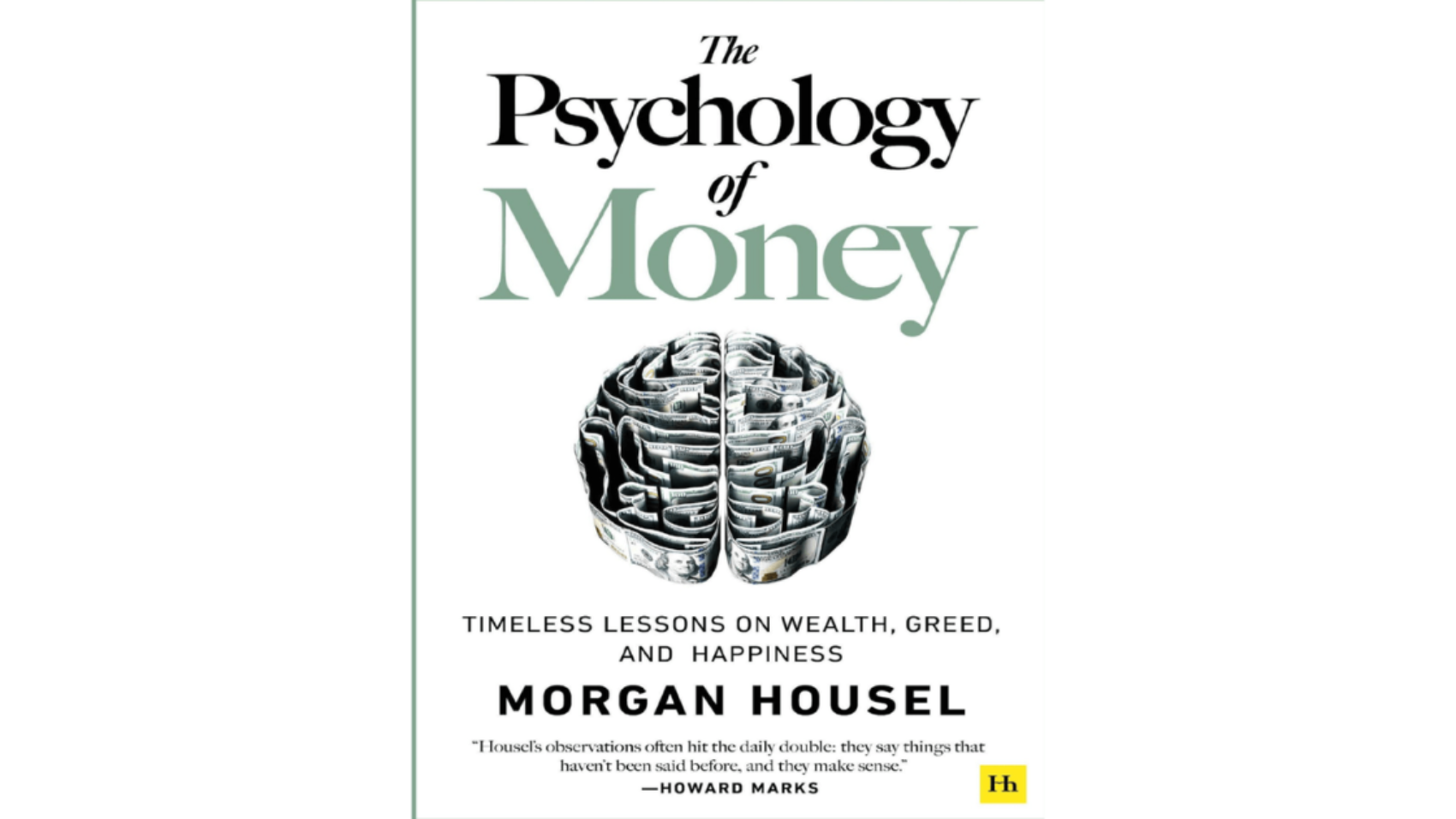The complicated bond between people and money is examined in the book “The Psychology of Money” by Morgan Housel. It explores how our attitudes, feelings, and actions influence our financial choices and consequences. The book’s synopsis is as follows:
There are 20 chapters in the book, each of which discusses a distinct facet of the psychology of money. Among the important subjects are:
1. Financial behavior is more significant than financial knowledge
2. How luck and risk affect the results of investments
3. The distinction between wealth and wealthiness
4. The impact of narrative on how we interpret money
5. The risks of financial history being repeated
6. How time affects our financial decisions and their value
7. The value of long-term planning and the strength of compounding
8. How to avoid the dangers of debt and the psychology of debt
9. The value of keeping a safety margin while investing
10. The advantages of a contrarian investing strategy
Housel emphasizes the significance of comprehending one’s own psychology and biases with regard to money throughout the entire book. He contends that having the right mindset and behaviors are equally as important as having the appropriate information and abilities for effective financial management. Anecdotes, stories, and examples that exemplify the principles and ideas discussed throughout the book are numerous. Housel provides a thorough and engrossing account of the psychology of money by drawing from a variety of sources, including history, psychology, economics, and personal finance.
The Book in 3 Sentences
- Success in investing has less to do with knowledge and more to do with behavior. Many of the most significant financial decisions are made in the arena of human psychology rather than in the world of spreadsheets and figures.
- Risk is a key component of investing, and it’s critical to realize that it’s not the same as uncertainty. While uncertainty cannot be completely eradicated from the future, it can be quantified and managed. The best investors are those who are aware of the difference and are at ease dealing with uncertainty.
- In the end, wealth is a means to an end and not an end in and of itself. Financial freedom is more about being able to live the life you want without worrying about money than it is about accumulating wealth. Although accumulating riches might play a significant role in this, it’s crucial to remember the end aim.
Impressions
The most common impressions from the book “The Psychology of Money” by Morgan Housel are:
Insightful: The book is highly insightful, providing people with unique perspectives on money and how our emotions, behavior, and psychology affect our financial decisions.
Easy to read: The book is written in a conversational and easy-to-understand style, making complex financial concepts accessible to people of all backgrounds.
Practical: The book provides practical advice and actionable insights that people can apply to their own lives and financial situations. It focuses on understanding the underlying psychological and behavioral factors that drive our financial decision-making, rather than just on financial theory or strategies.
How I Discovered It
“The Psychology of Money” has gained popularity through word of mouth, social media, and online book recommendations from financial bloggers and advisors. I found it through The Wall Street Journal.
Who Should Read It?
Anyone interested in personal finance, investing, and the psychology of money would benefit from reading this book. It’s also a great resource for financial advisors, investors, and anyone who wants to understand their own relationship with money
How the Book Changed Me
After reading this book, I further doubled down my perspective on money and investing. I learned to focus on the long term, avoid making impulsive decisions, and embrace the idea of uncertainty and risk. I also developed a better understanding of the psychological and emotional factors that can impact financial decision-making.
My Top Quotes
- “The ability to do well with what you have, rather than always needing more to do well, is one of the most valuable skills you can develop.”
- “Wealth is hidden. It’s income not spent. Wealth is an option not to worry about the rent, an option to choose what you want to do with your time.”
- “Humility, gratitude, and intellectual curiosity are the cornerstones of rational thinking, which is the bedrock of making good decisions.”
- “The world is a feedback loop: We do things that give us a favorable result, and we avoid things that give us an unfavorable result.”
- “Getting money requires taking risks, being optimistic, and putting yourself out there. But keeping money requires the opposite of taking risk. It requires humility, and fear that what you’ve made can be taken away from you just as fast.”
Detailed Notes//Key Topics
Some of the key topics covered in the book “The Psychology of Money” by Morgan Housel are:
- The power of time and compounding: The book stresses the importance of starting early and the power of time in building wealth through compounding.
- Behavioral finance: The author emphasizes the role of psychology in personal finance and investing, and how emotions and biases can impact financial decisions.
- The importance of frugality and simplicity: The book highlights the value of living below your means, avoiding unnecessary expenses, and investing in simple, low-cost investment products such as index funds.

